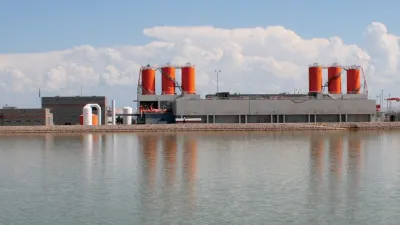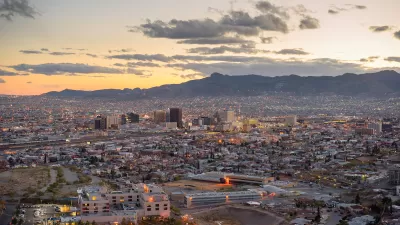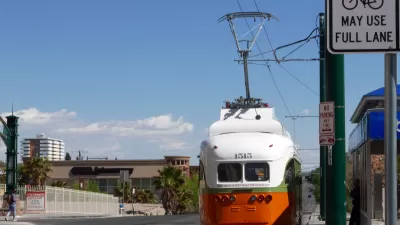El Paso is seen as one of the more successful mid-sized cities in the U.S. But as this op-ed from Domus explores, the fuel behind that success is the drug trafficking that has plagued Mexico and its border with the U.S.
The economic success of El Paso and other Texas communities might not be the result of good policies or good jobs, but rather the presence of so much drug money.
"No matter what people are getting paid to do in Texas-from selling cars on the floor of a luxury showroom to hammering nails into siding-the origin of a lot of the money in circulation is dubious at best. From this perspective, Texas is no different from any other so-called narcostate, funneling illicit profits from drugs, extortion, weapons, and human smuggling into the legit facade of a highly flexible economy that Kotkin calls for emulating. Could this be possible, and what might it say about 21st century American urbanism?
No need to look too far for evidence. In one recent court document, indicted cartel chief Vicente Jesús Zambada-Niebla alleged that the U.S. Drug Enforcement Agency cut a deal to protect the Sinaloa cartel in exchange for intelligence on rival organizations, giving us a lurid glimpse of the scale of this conspiracy. In a similar operation that has blown-up into a full scandal, the Bureau of Alcohol, Tobacco, Firearms, and Explosives supervised gunrunning to the cartels, briefing the DEA and at least one White House official along the way. The insane mission backfired when a U.S. border patrolman was killed with a weapon traced back to the operative."
FULL STORY: Journey to the transnational narcopolitical city

Planetizen Federal Action Tracker
A weekly monitor of how Trump’s orders and actions are impacting planners and planning in America.

San Francisco's School District Spent $105M To Build Affordable Housing for Teachers — And That's Just the Beginning
SFUSD joins a growing list of school districts using their land holdings to address housing affordability challenges faced by their own employees.

The Tiny, Adorable $7,000 Car Turning Japan Onto EVs
The single seat Mibot charges from a regular plug as quickly as an iPad, and is about half the price of an average EV.

Seattle's Plan for Adopting Driverless Cars
Equity, safety, accessibility and affordability are front of mind as the city prepares for robotaxis and other autonomous vehicles.

As Trump Phases Out FEMA, Is It Time to Flee the Floodplains?
With less federal funding available for disaster relief efforts, the need to relocate at-risk communities is more urgent than ever.

With Protected Lanes, 460% More People Commute by Bike
For those needing more ammo, more data proving what we already knew is here.
Urban Design for Planners 1: Software Tools
This six-course series explores essential urban design concepts using open source software and equips planners with the tools they need to participate fully in the urban design process.
Planning for Universal Design
Learn the tools for implementing Universal Design in planning regulations.
Smith Gee Studio
City of Charlotte
City of Camden Redevelopment Agency
City of Astoria
Transportation Research & Education Center (TREC) at Portland State University
US High Speed Rail Association
City of Camden Redevelopment Agency
Municipality of Princeton (NJ)





























